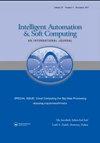一种边缘任务卸载的能量感知算法
IF 2
4区 计算机科学
Q2 Computer Science
引用次数: 1
摘要
为了解决边缘任务卸载过程中边缘服务器的能耗优化问题,本文提出了一种基于强化学习的任务卸载算法。该算法对当前环境状态进行观察和分析,根据当前环境状态选择边缘任务的部署位置,实现面向能耗优化的边缘任务卸载。为了实现上述目标,我们首先构建了包含服务器能耗和链路传输能耗的网络能耗模型,提高了网络能耗评估的准确性。针对边缘环境的复杂性和可变性,本文设计了一种基于近端策略优化(PPO)的任务卸载算法,并利用Dijkstra确定部署相邻任务的边缘服务器之间的连接路径。最后,通过大量的仿真实验验证了该方法在任务卸载过程中的有效性。与对比算法相比,该算法的平均节能率可达22.69%。本文章由计算机程序翻译,如有差异,请以英文原文为准。
An Energy Aware Algorithm for Edge Task Offloading
To solve the problem of energy consumption optimization of edge servers in the process of edge task unloading, we propose a task unloading algorithm based on reinforcement learning in this paper. The algorithm observes and analyzes the current environment state, selects the deployment location of edge tasks according to current states, and realizes the edge task unloading oriented to energy consumption optimization. To achieve the above goals, we first construct a network energy consumption model including servers’ energy consumption and link transmission energy consumption, which improves the accuracy of network energy consumption evaluation. Because of the complexity and variability of the edge environment, this paper designs a task unloading algorithm based on Proximal Policy Optimization (PPO), besides we use Dijkstra to determine the connection path between edge servers where adjacent tasks are deployed. Finally, lots of simulation experiments verify the effectiveness of the proposed method in the process of task unloading. Compared with contrast algorithms, the average energy saving of the proposed algorithm can reach 22.69%.
求助全文
通过发布文献求助,成功后即可免费获取论文全文。
去求助
来源期刊

Intelligent Automation and Soft Computing
工程技术-计算机:人工智能
CiteScore
3.50
自引率
10.00%
发文量
429
审稿时长
10.8 months
期刊介绍:
An International Journal seeks to provide a common forum for the dissemination of accurate results about the world of intelligent automation, artificial intelligence, computer science, control, intelligent data science, modeling and systems engineering. It is intended that the articles published in the journal will encompass both the short and the long term effects of soft computing and other related fields such as robotics, control, computer, vision, speech recognition, pattern recognition, data mining, big data, data analytics, machine intelligence, cyber security and deep learning. It further hopes it will address the existing and emerging relationships between automation, systems engineering, system of systems engineering and soft computing. The journal will publish original and survey papers on artificial intelligence, intelligent automation and computer engineering with an emphasis on current and potential applications of soft computing. It will have a broad interest in all engineering disciplines, computer science, and related technological fields such as medicine, biology operations research, technology management, agriculture and information technology.
 求助内容:
求助内容: 应助结果提醒方式:
应助结果提醒方式:


